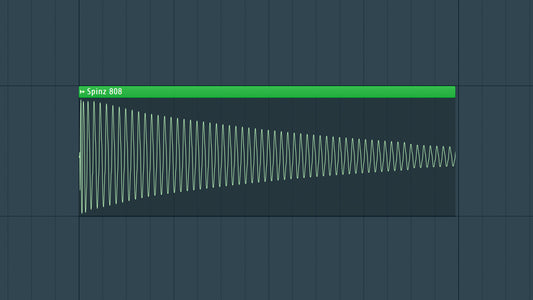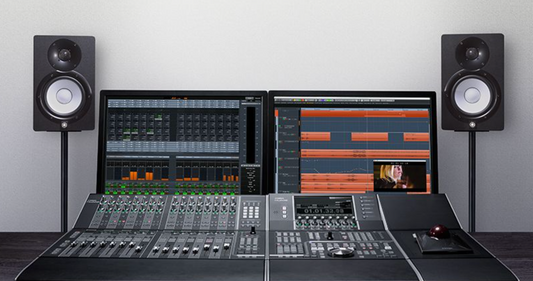Introduction
Since I started learning music production 15+ years ago, I have gathered a ton of knowledge on how to make professional sounding music. Today I want to share with you the best tips I have learned that helped me in my music career. Embarking on the journey of music production and songwriting requires a combination of technical skills, creative intuition, and a passion for sonic exploration. In this blog post, we'll unravel 50 invaluable tips that span the realms of music production and songwriting, equipping you with a diverse toolkit to enhance your creativity and take your music to new heights.
DOWNLOAD 20+ FREE SAMPLE PACKS - CLICK HERE

1-10: Songwriting Essentials
- Start with a Concept:
- Begin your songwriting process with a clear concept or theme. This will guide your creative decisions and lend coherence to your work.
- Explore Different Perspectives:
- Experiment with writing from various perspectives, whether it's first-person, third-person, or even an inanimate object. This can inject fresh creativity into your lyrics.
- Master the Art of Melody:
- Craft memorable melodies by experimenting with intervals, rhythm, and contour. A strong melody is the backbone of any great song.
- Harness the Power of Chords:
- Dive into chord progressions to evoke different emotions. Experiment with both common and unconventional chord changes.
- Lyric Economy:
- Strive for lyric clarity and conciseness. Each word should contribute to the overall message without unnecessary clutter.
- Create a Strong Hook:
- Craft a catchy and memorable hook that serves as the focal point of your song. A strong hook keeps listeners engaged and leaves a lasting impression.
- Experiment with Song Structures:
- Break away from conventional song structures. Explore variations like AABA, verse-chorus-verse, or even free-form structures.
- Understand Song Dynamics:
- Utilize dynamics to create peaks and valleys in your songs. Experiment with volume, instrumentation, and intensity to keep your audience engaged.
- Embrace Collaborations:
- Collaborate with other songwriters and musicians to gain new perspectives and ideas. A fresh pair of ears can elevate your work.
- Edit Ruthlessly:
- Be willing to edit and refine your work. Sometimes, simplicity and clarity emerge after careful pruning.
11-30: Music Production Techniques
- Learn Your DAW Inside Out:
- Master your Digital Audio Workstation (DAW) to streamline your production process and unlock creative possibilities.
- Explore Virtual Instruments:
- Dive into the world of virtual instruments. From realistic orchestral sounds to electronic synths, these can expand your sonic palette.
- Understand Music Theory:
- Develop a basic understanding of music theory to enhance your compositional skills and make informed creative choices.
- Experiment with Sampling:
- Sampling is a powerful tool. Experiment with chopping and manipulating samples to create unique textures in your music.
- Master Compression:
- Understand how to use compression to control dynamics and add punch to your mixes. Experiment with both subtle and aggressive settings.
- Embrace Automation:
- Utilize automation to add movement and variation to your tracks. Automate parameters like volume, panning, and effects.
- Layer Sounds for Depth:
- Layering sounds adds depth to your mix. Experiment with layering different instruments or textures to create a richer sonic landscape.
- Create a Dynamic Mix:
- Achieve a balanced and dynamic mix by paying attention to levels, panning, and frequency balance.
- Explore Sound Design:
- Dive into sound design to craft your own unique sounds. Experiment with synthesizers, samplers, and effects.
- Use Effects Creatively:
- Effects like reverb, delay, and modulation can transform your sounds. Use them creatively to add character and atmosphere.
- Master Parallel Processing:
- Implement parallel processing to add intensity and character to your tracks without sacrificing the clarity of the original signal.
- Understand EQ Techniques:
- Learn advanced EQ techniques, such as notch filtering, mid-side EQ, and surgical EQ, to sculpt your sound precisely.
- Experiment with Stereo Imaging:
- Manipulate the stereo field to create a sense of space. Experiment with stereo widening, panning, and mid-side processing.
- Work with Bus Processing:
- Apply processing to groups of tracks using bus processing. This can add cohesion and glue to your mix.
- Utilize Sidechain Compression:
- Implement sidechain compression to create rhythmic and dynamic effects, particularly in electronic music genres.
- Invest in Quality Monitoring:
- Quality monitoring is crucial. Invest in good headphones or studio monitors to ensure accurate representation of your mixes.
- Explore Resampling:
- Resampling involves bouncing tracks and manipulating the audio further. Experiment with resampling to generate unique textures.
- Understand the Importance of Transients:
- Pay attention to transients in your mix. Enhance or control them using transient shapers to impact the overall feel of your music.
- Mix in Mono:
- Mixing in mono can reveal phase issues and help you achieve a balanced mix that translates well across different playback systems.
- Use Reference Tracks:
- Compare your mix to professionally produced tracks in a similar genre. Reference tracks help you gauge the overall tonal balance and dynamic range.
31-50: Creativity and Workflow Tips
- Set Regular Goals:
- Establish short-term and long-term goals for your music production journey. This keeps you focused and motivated.
- Take Breaks:
- Avoid burnout by taking regular breaks during your sessions. Clearing your mind enhances creativity and prevents ear fatigue.
- Stay Organized:
- Keep your project files and samples organized. A well-organized workspace saves time and reduces frustration.
- Experiment with Genres:
- Don't limit yourself to one genre. Experimenting with different styles can spark new ideas and expand your skill set.
- Learn Keyboard Shortcuts:
- Mastering keyboard shortcuts in your DAW improves workflow efficiency. It's a small investment that pays off in the long run.
- Create Templates:
- Develop templates with your preferred instruments, effects, and routing. Templates save time and provide a consistent starting point.
- Explore Unconventional Recording Techniques:
- Think outside the box when recording. Experiment with unconventional mic placements and recording environments.
- Seek Feedback:
- Share your work with peers or online communities to receive constructive feedback. Other perspectives can offer valuable insights.
- Keep a Creative Journal:
- Maintain a journal for creative ideas, lyrics, or production techniques. It's a handy resource for overcoming creative blocks.
- Attend Live Performances:
- Experience live music performances. This exposure can inspire new ideas and help you understand the impact of different elements on an audience.
- Learn Basic Music Business:
- Understand the basics of music business, including royalties, contracts, and copyright. This knowledge protects your work and facilitates collaborations.
- Experiment with Unusual Instruments:
- Incorporate non-traditional instruments or found sounds into your compositions. This adds a unique flair to your music.
- Join Collaborative Projects:
- Participate in collaborative projects with other musicians or artists. Collaboration introduces you to diverse styles and approaches.
- Take Music Theory Courses:
- Enroll in online or local music theory courses. Deepening your understanding of theory can significantly enhance your composition skills.
- Attend Workshops and Conferences:
- Attend music production workshops and conferences. These events offer networking opportunities and exposure to the latest industry trends.
- Experiment with Unusual Time Signatures:
- Break away from standard time signatures. Experimenting with odd meters can yield unique and captivating rhythmic structures.
- Invest in Quality Samples:
- High-quality samples elevate your productions. Invest in reputable sample libraries to enhance your sonic palette.
- Don't Fear Experimentation:
- Be open to experimentation. Some of the most groundbreaking sounds and techniques emerge from fearless exploration.
- Stay Inspired Outside Music:
- Draw inspiration from other forms of art, literature, or nature. A well-rounded source of inspiration fuels creativity.
- Celebrate Your Progress:
- Recognize and celebrate your achievements along the way. Acknowledging progress boosts confidence and keeps you motivated.
DOWNLOAD 20+ FREE SAMPLE PACKS - CLICK HERE
Conclusion
Embarking on a journey in music production and songwriting is an exciting endeavor filled with creative possibilities. These 50 tips encompass a broad spectrum of techniques and philosophies, providing a comprehensive guide to enhance your skills, cultivate your creativity, and bring your musical visions to life. Whether you're a seasoned producer or just starting, this collection of insights is designed to inspire, inform, and elevate your music to new heights. Happy creating!




